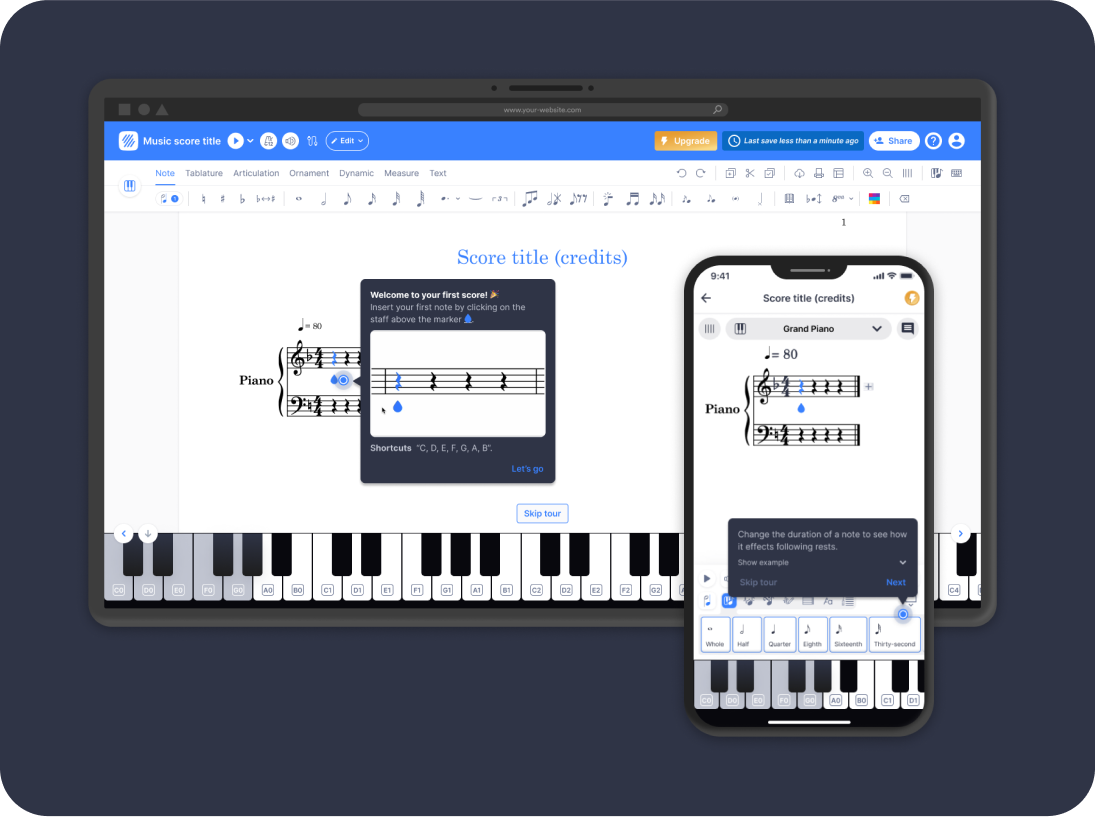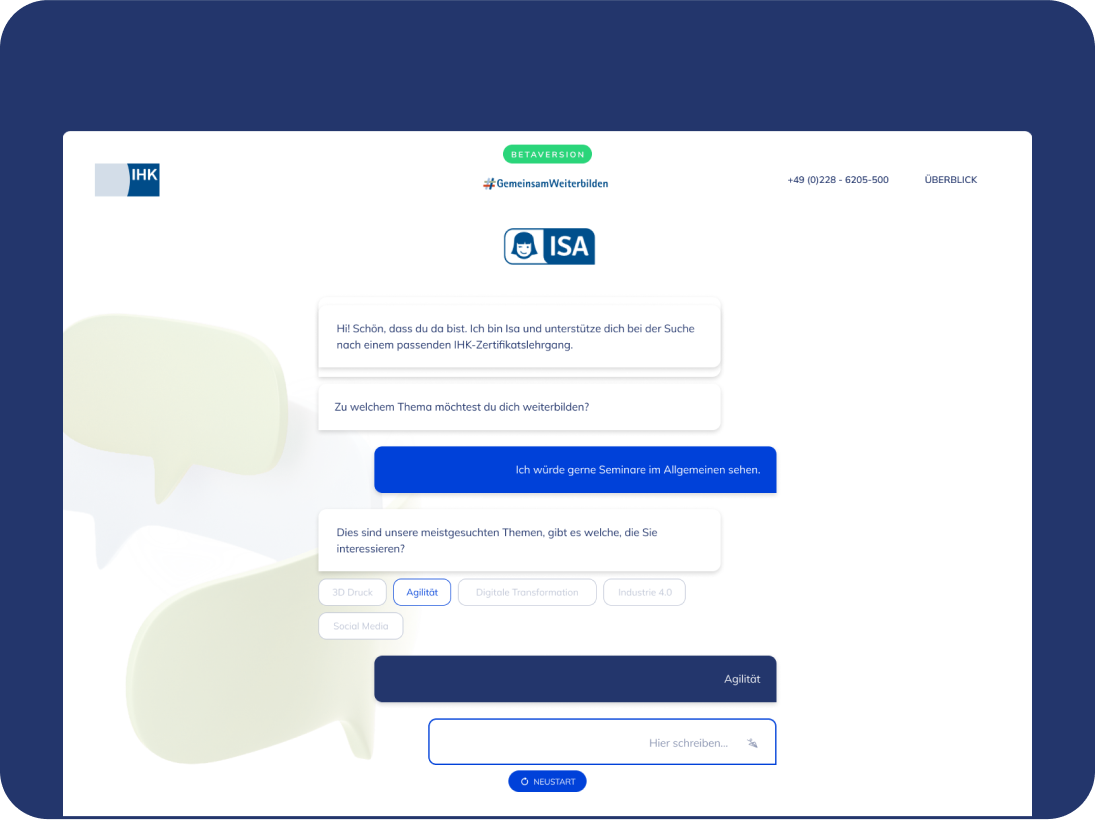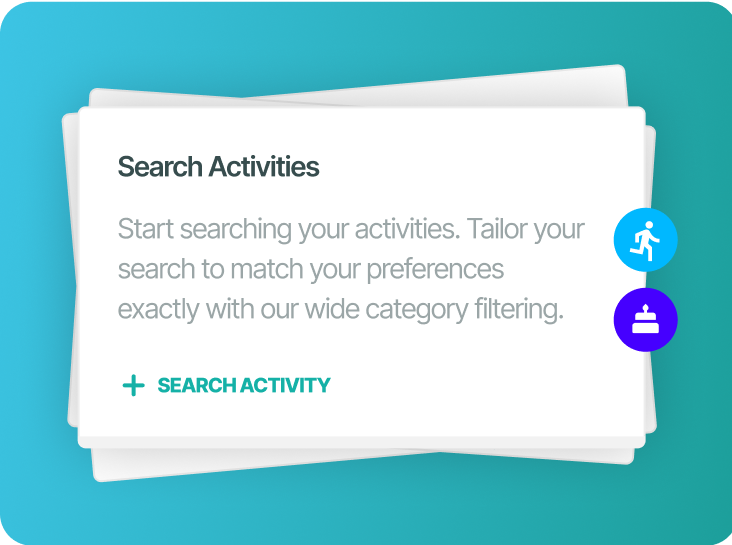AI Coaching Digital Coaching Mobile Solution
B2B—PWA WEB APP
Being experts in language psychology, computer linguistics, conversational writing, machine learning and data-science, AI Coaching specialises in the development of web-based digital coaching solutions, designed to help professionals further develop themselves with the help of a digital health coach bot. Their core skills and values focus on digital health coaches, chatbots, conversational AI, interactive learning and development.

Overview
With the boom in coaching industry for personal and professional development, by January 2020, the wait for an appointment with specialised coaches in the sales fields became more and more common, with prior scheduling being required oftenly with more or less +6 months notice.
Timeline
Role
Team
1 Project Manager/Data-Scientist, 1 Full-stack Developer, 1 Machine Learning Engineer at AI Coaching GmbH
Facilitate personalised training sessions for sales professionals through a digital coaching solution, including practical training with the digital coach-bot and in addition, live coaching sessions with a top sales coach for support.
Problem Statement
Project Breakdown
In an initial stage, the co-founder and product manager for this project – Fabian Reich started by creating a business Canva which was shared with the whole team to analyse the problems, solutions, value propositions, key metrics and hypothesis.
Research
He then conducted a series of interviews with various sales professionals of an insurance company in order to find out the main struggles of these professionals. Note: At this time, it was not feasible for me to join in the user interviews due to the speaking language.
During this survey, it was found out that there were two main user groups:
- young sales professionals
- expert sales professionals
Understanding each of these user’s motivations was important, because it made it clear which user we were actually able to help and create opportunities for with our solution.

Design Process
With the help of coach experts, targeting our main user — the young sales professionals, a few modules with targeted intervention activity sequences were created for the digital coach bot.
To come up with the best solution possible in the short-time required from me and the rest of the team to deliver a product, I started by leading a few workshops with the technical team (Kelly Mestre — Fullstack Engineer and Sara Rijo — Machine Learning Engineer) where we brain-stormed ideas, stated the best stack to use, analysed possible technical implications, documented the whole process, and then I followed-up building the information architecture and constructing user-flows.
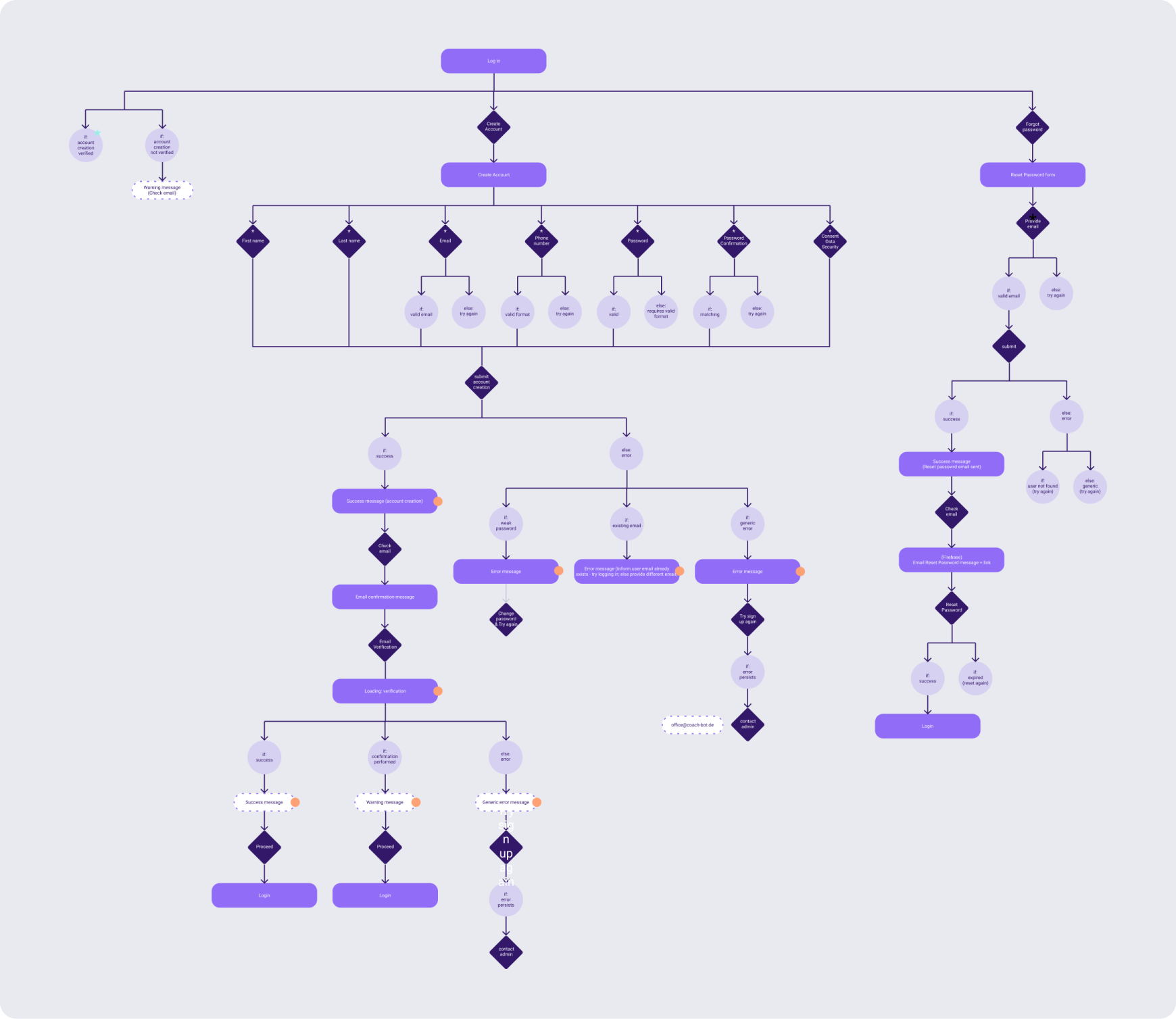
Login user-flow
Wireframes
Based on the user flows created, I then started by sketching some simple wireframes just to get a better feel of the functionalities within the app.
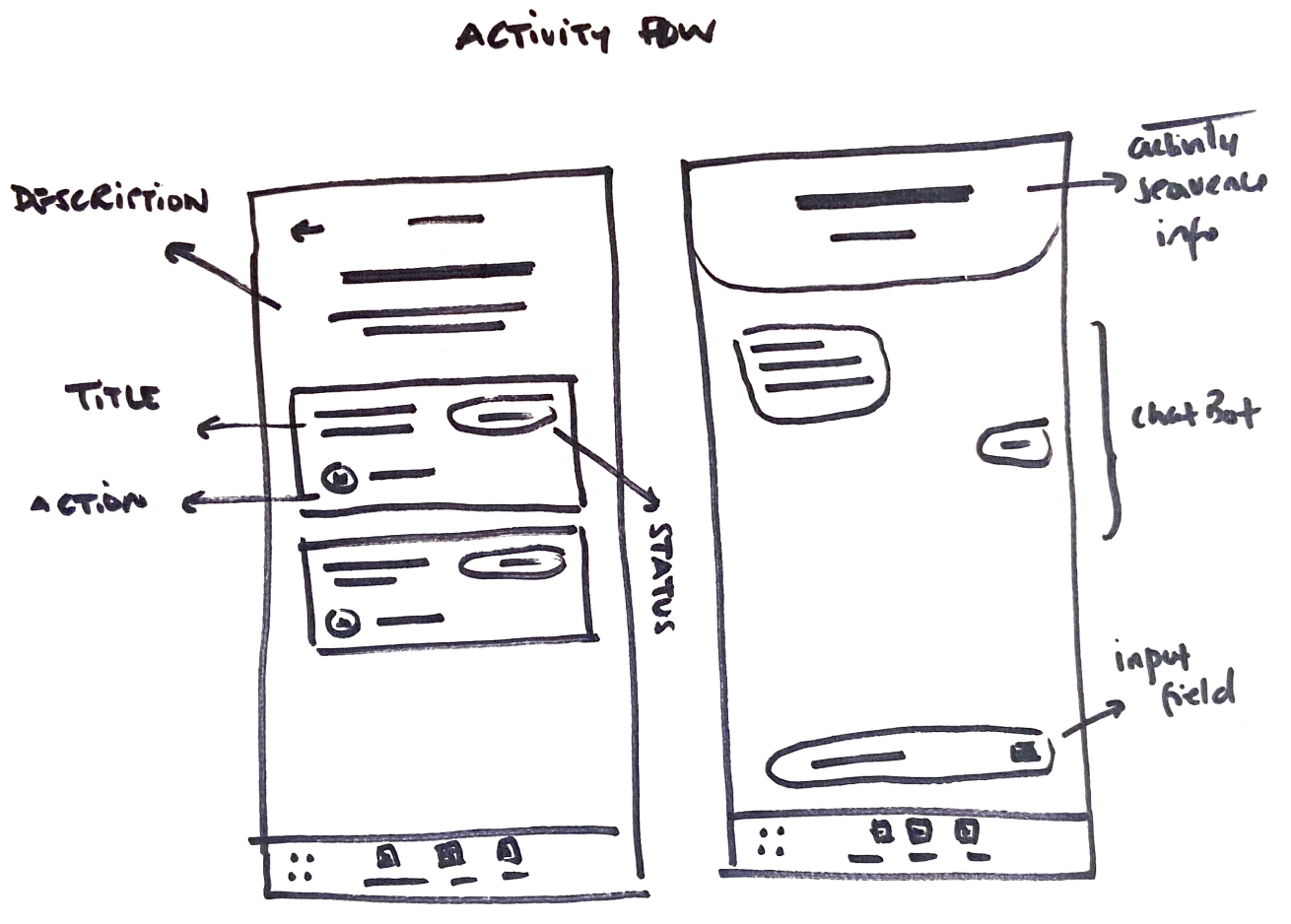


Final Designs
Once each flow was refined and reviewed with the team, I designed the screens in hi-fidelity using Figma, also creating a prototype to test with a small focus group of customers before development implementation.


Other Screens
Some more designs on other features of the product.
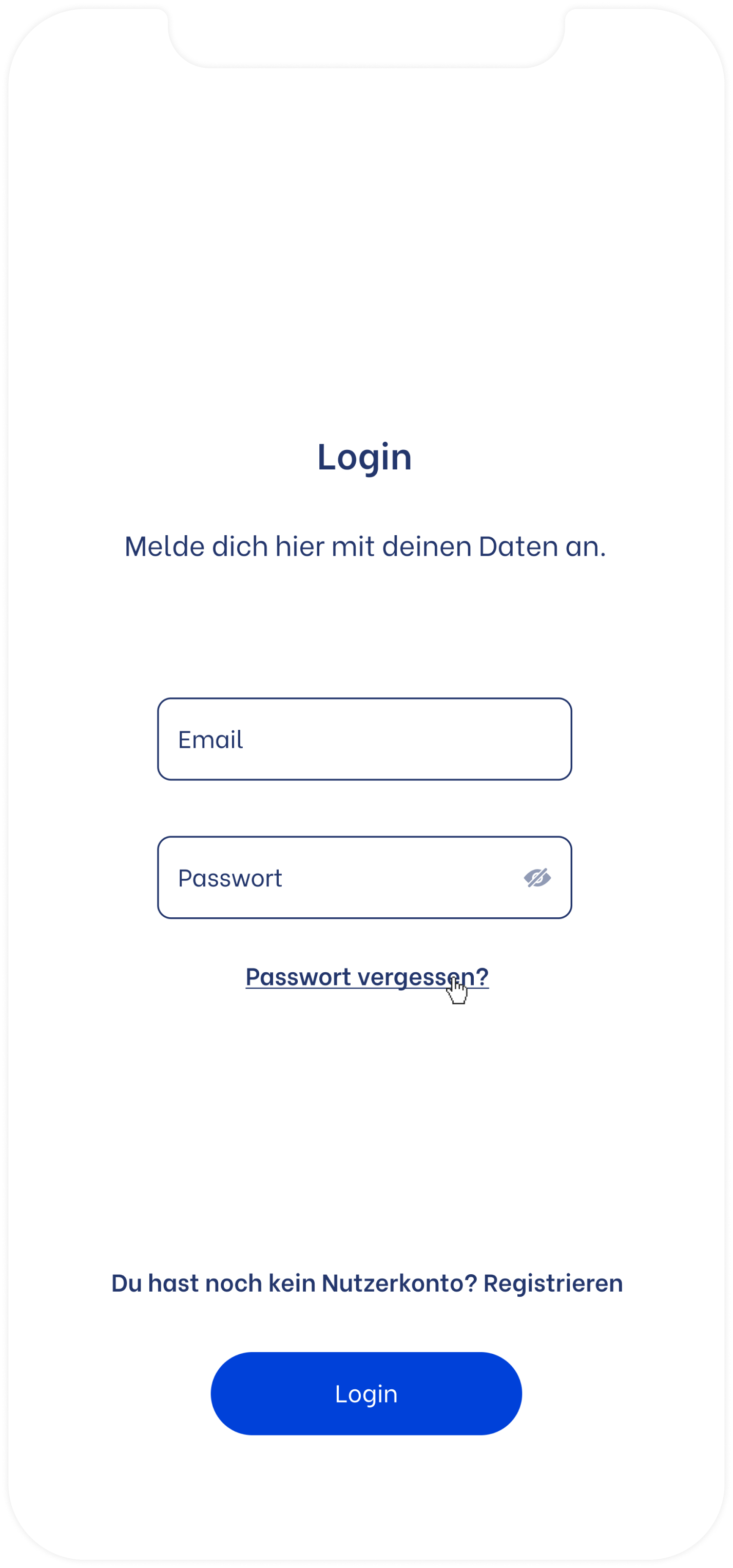

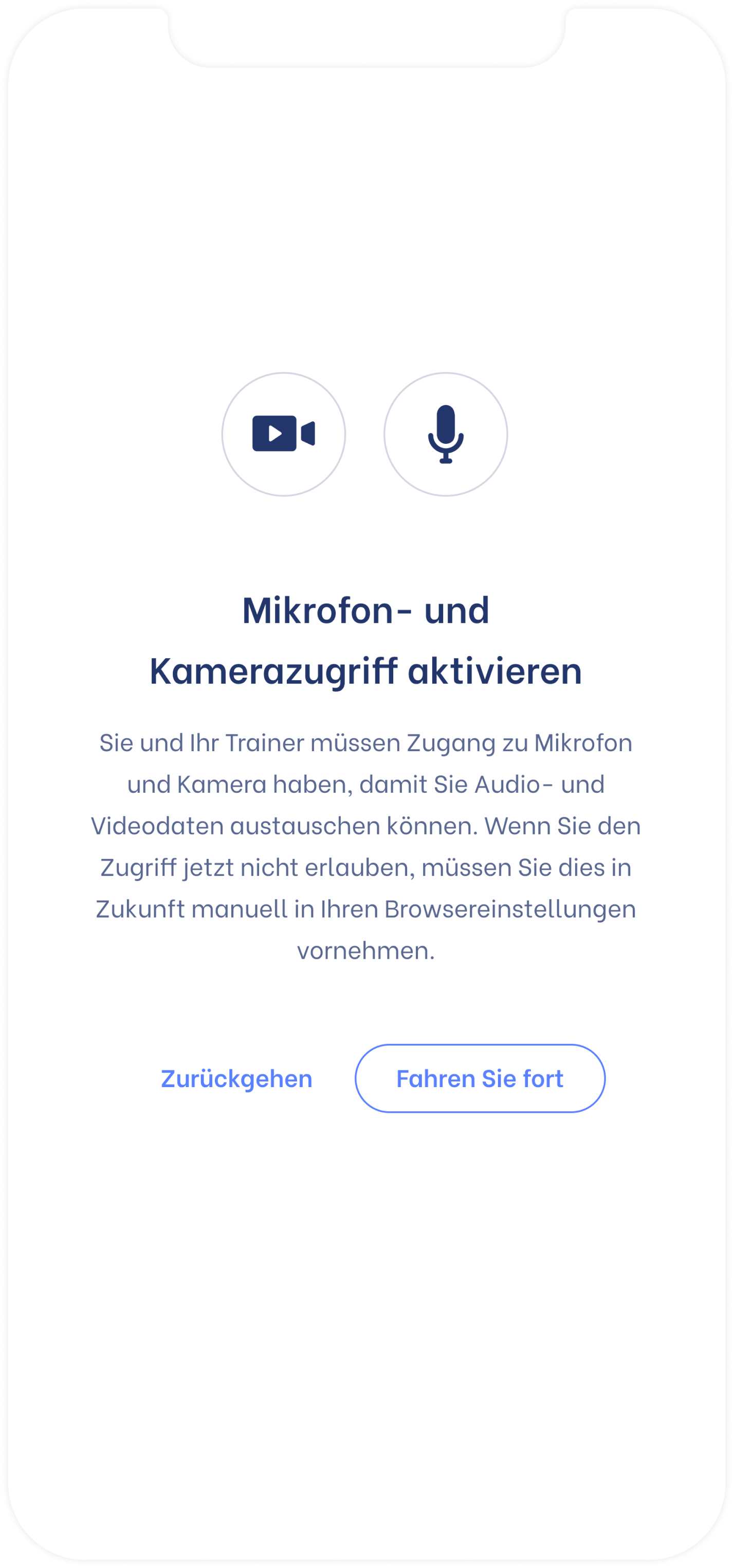


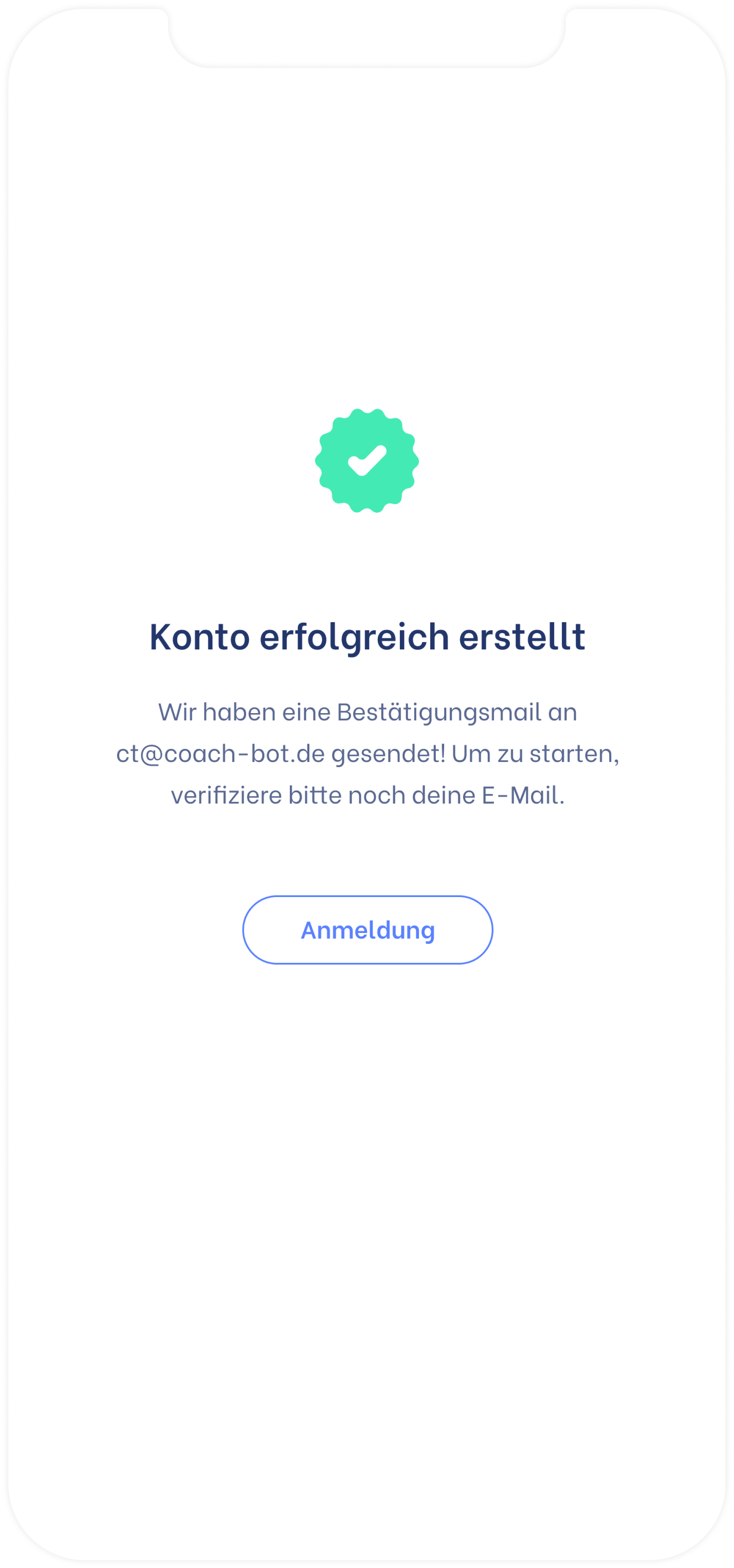
Design System
I also created a design system to use throughout the app. This helped me create more consisten designs quickly and maintain the brands aesthetic.

Stats Insights
The product was tested with two groups of users. Each group consisted of 10 people.
In the first group, only 1 out of the 10 users, did not follow through with the coaching plan.
Over 10+ people were interviewed in the research phase
Final Outcome
Throughout the process there were a few iterations made in accordance with some of the user-feedback we got on the Invision Prototype I made, and I found it most helpful to have such a direct contact in the collaboration with the rest of the technical team from the very early stages because we were able to pin-point technical implications from stack use to interaction flows from from the very start, creating a very smooth process and much faster process from design to development.
Learning Take-aways
The cross-collaboration with the team from brainstorming sessions, to task breakdowns, iterations and implementation enabled me to work iteratively to find solutions that met the needs of the customers; while having ownership towards the app, working on it from start to finish and having the freedom to make decisions on the best practices and implementation was very rewarding.

Mais Amor Por favor

